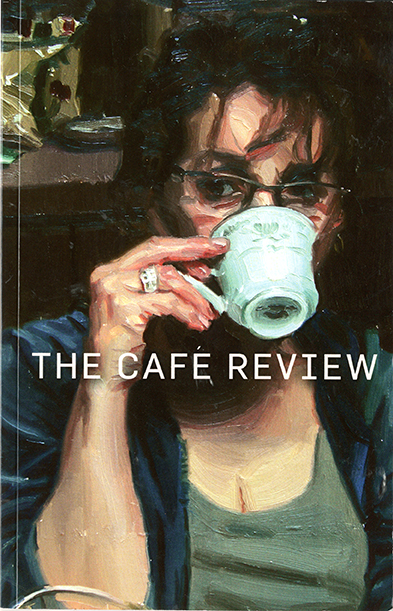The Gravel Diaries

by Martin Ott
The pen scratches a long-ago itch.
A one-eared dog brays at a coyote
invading his street. The delivery
truck coughs too close for comfort.
I hid away in my room, lost in yellow,
the light stabbing villains and time –
washed pages. A child’s toy dagger
hisses in the scabbard. The LA River
gurgles in a tectonic bouillabaisse.
My heroes for a time hid in spines.
Damp shirts on the balcony ululate
on a swinging noose. An inconsolable
lover sighs only within earshot.
The wail follows me from when my husky
was put to sleep. The smart phone quakes
in the middle of the night. Shrapnel
whistles for its fleeing companions.
I read one book for each time I cleaned
my rif le. Gravel grinds its endless migration
back home. Friends were lost to distance,
to madness, to drugs and to the ditch
I tossed things into when I fled the scene.
Losses pile up, rumble from yet another
subterranean port. Passage is paramount.
Books saved me from the abyss.
Spring Thaw

by Mike Bove
Side streets roil with rough slush,
diminutive whitecaps loll
at the foot of driveways,
mailboxes wear melting crowns
and bow low under sodden heft:
this is the thaw.
The faithful believe
in coming warmth,
won’t lose hope for spring
turned summer
turned fall, for sunny green
forgetfulness.
Each grinding hour of winter
brings dreams of equinox at the window,
sudden birds at the feeder,
while thoughts coil toward
the hall closet where heavy coats
hang lifeless in the dark,
empty and open.
There is a Rumor That During Construction of one of Portland’s Prominent Thoroughfares in the 1850s, Some Workers Died in a Freak Accident and the Road was Built Atop Their Bodies

by Mike Bove
The men buried beneath Commercial Street
are hardly resting. They died where they worked,
stayed where they fell, and rolled only ever so slightly
when the trucks came with fill, train rail, and thousands
of blocks of cobble. So tightly packed underneath
they can’t even call to one another
with the windy translucence of the other side.
Some nights when the rain falls they get the itch
to do some real work again, unaware
that the road’s long finished, graduated
from horse-drawn carriage to ornate town car to
hipster-driven rickshaw. Progress on the streets stays
on the surface, but some nights I lie awake
and think about these men, imagine them
sitting up to wipe their eyes and climb, glowing,
out of the muck to stalk the street they almost built,
weaving in and out of hotels, tracking cabs, or pausing
at a shimmering storefront to gape at a souvenir snowglobe.
Twenty Years On

by Suzanne Osborne
Is dead acute — the first gasp of loss
and relief when your jagged presence
was torn from my life?
Or is it chronic — the long vanishment that followed
as we less and less often recounted our memories
of you, my eyes less and less often sought your picture
on the piano, and the wound slowly closed
so that now even I can scarcely see the scar?
I still wear your warm Scottish sweater
and the flowered Givenchy blouse I took
from your closet, but your ownership has faded
from them with the scent of your rose sachet.
Even the wedding ring I slipped on my finger
that night for safekeeping feels mostly mine.
So I wonder now:
Are you more
or less
dead
than when I found you?


